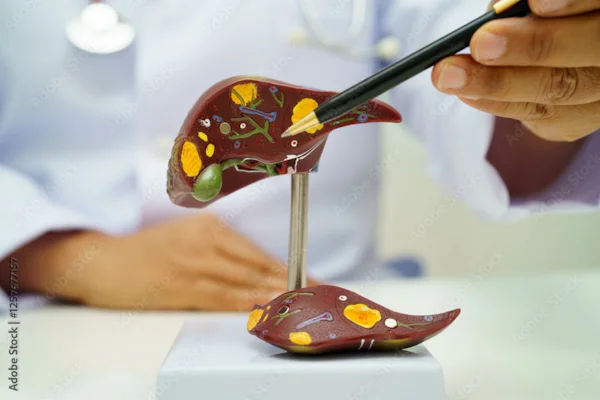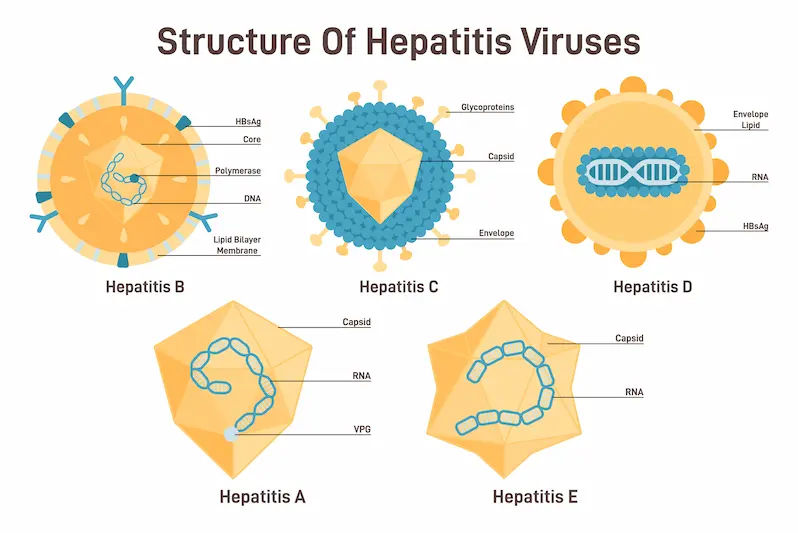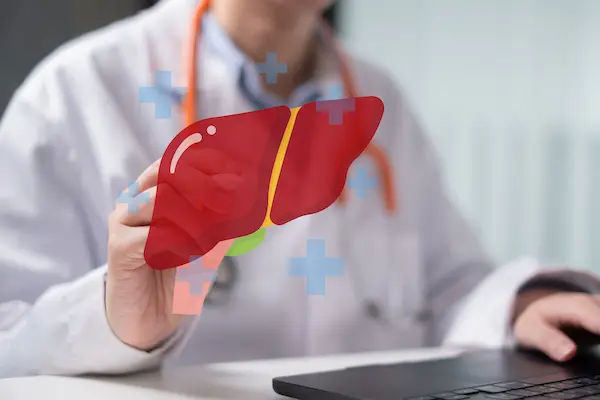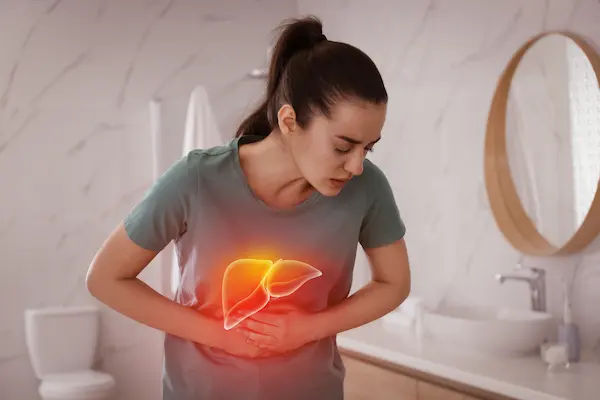Your Ultimate Guide to Hepatitis Prevention: 5 Essential Tips
Know about hepatitis, what it is and lifestyle tips for the prevention of hepatitis and more.

Written by Dr. M L Ezhilarasan
Reviewed by Dr. D Bhanu Prakash MBBS, AFIH, Advanced certificate in critical care medicine, Fellowship in critical care medicine
Last updated on 13th Jan, 2026
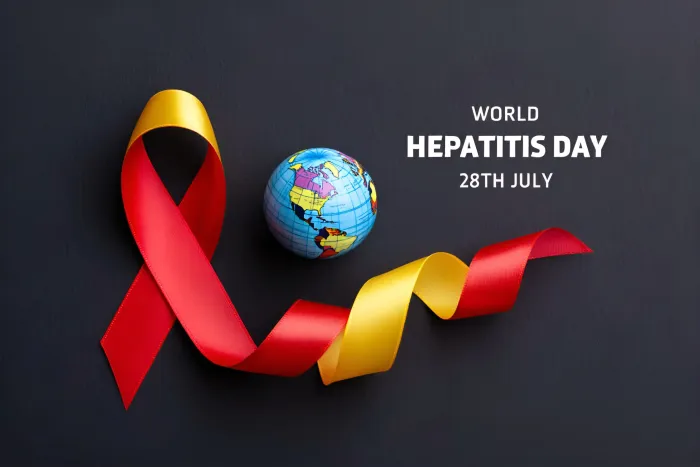
Introduction
Hepatitis, an inflammation of the liver, is a significant global health concern that often flies under the radar until it causes serious damage. While the word itself might sound intimidating, the good news is that many forms of hepatitis are highly preventable. This comprehensive guide is designed to empower you with practical, actionable knowledge. Whether you're planning travel, managing a chronic condition, or simply want to safeguard your family's health, understanding hepatitis prevention is a critical step. We will demystify the different types of hepatitis, break down exactly how they are transmitted, and provide you with a clear, multi-layered strategy to protect your liver. From the power of vaccination to everyday habits you can adopt, consider this your go-to resource for building a robust defense against this silent threat. Let's dive into the essential tips that can significantly reduce your risk.
What is Hepatitis? A Quick Primer on Liver Inflammation
Before we explore prevention, it's crucial to understand what we're preventing. Hepatitis is primarily caused by viral infections, though it can also result from autoimmune diseases or substance abuse. The liver is your body's powerhouse, responsible for filtering toxins, processing nutrients, and fighting infections. When it becomes inflamed, its ability to function is compromised.
Consult a Liver Specialist for Personalised Advic
The ABCs (and D and E) of Hepatitis Viruses
The five main viral types are Hepatitis A, B, C, D, and E. They differ greatly in how they spread, their severity, and prevention methods.
1. Hepatitis A (HAV): Spread through ingestion of contaminated food or water. It's typically an acute, short-term illness and does not lead to chronic disease. Prevention is focused on hygiene and vaccination.
2. Hepatitis B (HBV): Transmitted through contact with infectious blood, semen, and other body fluids. It can be both acute and chronic. Vaccination is the cornerstone of hepatitis B prevention.
3. Hepatitis C (HCV): Primarily spread through blood-to-blood contact, often associated with shared needles. It frequently becomes a chronic infection and is a leading cause of liver cirrhosis and cancer. There is no vaccine, so preventing hepatitis C relies on avoiding exposure.
4. Hepatitis D (HDV): A rare form that only occurs in people who are already infected with Hepatitis B. Preventing HBV also prevents HDV.
5. Hepatitis E (HEV): Similar to HAV, it is waterborne and common in areas with poor sanitation. It is usually acute but can be dangerous for pregnant women.
Pillar 1: Vaccination – Your First Line of Defense
Vaccination is, without a doubt, the most effective medical intervention for hepatitis prevention. It provides long-lasting, specific immunity against certain types.
The Hepatitis A Vaccine: Who Needs It and Why
The HAV vaccine is safe and highly effective, typically given in two shots. It is recommended for:
All children at age one.
1. Travellers to countries where hepatitis A is common.
2. People with chronic liver disease.
3. Men who have sex with men.
4. People who use recreational drugs.
Getting vaccinated before travel is one of the most effective ways to avoid hepatitis A.
The Hepatitis B Vaccine: A Lifesaving Routine
The HBV vaccine is a routine childhood vaccination (given as a series of three or four shots) and is also recommended for all unvaccinated adults at risk. This includes healthcare workers, people with multiple sexual partners, individuals with diabetes, and those living with someone who has HBV. This vaccine is over 95% effective in preventing infection and its chronic consequences, making it a true lifesaver.
Why Isn't There a Hepatitis C Vaccine? Understanding the Challenge
This is a common question. The hepatitis C virus is a "moving target"—it has multiple genotypes and mutates rapidly, making it difficult for scientists to develop a vaccine that targets all variations. Therefore, preventing hepatitis C depends entirely on behavioural and environmental precautions, which we will cover next.
Pillar 2: Mastering Food and Water Safety
This pillar is your primary defense against Hepatitis A and E, which are spread via the "faecal-oral route." This means the virus from an infected person's stool contaminates food or water that is then consumed by others.
Smart Eating Habits to Ward Off Hepatitis A and E
When travelling or even at home, be vigilant about what you consume.
Drink Safe Water: Stick to bottled or boiled water in areas with questionable sanitation. Avoid ice cubes of unknown origin.
"Cook it, peel it, boil it, or forget it": This is the golden rule for travellers. Eat foods that are cooked and served hot. Wash and peel all raw fruits and vegetables yourself.
Avoid Raw Shellfish: Shellfish can be contaminated from seawater and are a known source of HAV.
The Golden Rules of Safe Food Handling at Home
Good hygiene starts in your own kitchen.
1. Wash Your Hands Thoroughly: Use soap and water after using the bathroom, before preparing food, and before eating.
2. Clean Surfaces: Use a disinfectant to clean kitchen counters, especially after handling raw meat.
3. Separate Raw and Cooked Foods: Use different cutting boards and utensils to avoid cross-contamination.
Pillar 3: Practising Safe Sex and Understanding Transmission
Hepatitis B is efficiently transmitted through sexual contact. Hepatitis C can also be spread sexually, though it is less common.
How Hepatitis B and C are Sexually Transmitted
HBV is present in semen, vaginal fluids, and blood. Using latex condoms correctly every time you have sex significantly reduces the risk of transmission. If you are not in a mutually monogamous relationship, or if your partner's status is unknown, practising safe sex is a non-negotiable aspect of hepatitis prevention. For those at ongoing risk, vaccination against HBV is essential.
Pillar 4: Extreme Caution with Blood and Bodily Fluids
This is critical for preventing Hepatitis B and C, which are blood-borne viruses.
Tattoos, Piercings, and Medical Procedures: What to Ask
Ensure any facility that breaks your skin follows strict sterilisation protocols.
1. Ask Questions: Choose reputable, licensed studios. Ask about their sterilisation procedures and if they use single-use, disposable needles and ink pots.
2. Medical Safety: In healthcare settings, ensure that syringes and other equipment are sterile and single-use. In many parts of the world, unsafe medical injections are a major mode of transmission.
Personal Items You Should Never Share
The virus can live on personal items for days. Never share:
1. Razors, nail clippers, or toothbrushes: These can have microscopic amounts of blood on them.
2. Needles or syringes: This is the most efficient way HCV is spread. If you use injection drugs, seek help and never share equipment.
Pillar 5: Healthy Lifestyle for a Resilient Liver
A healthy liver is better equipped to handle challenges. While this won't prevent viral infection directly, it strengthens your organ's resilience.
The Impact of Alcohol and Medications on Liver Health
1. Limit Alcohol: Excessive alcohol consumption is a direct toxin to liver cells and can lead to alcoholic hepatitis and cirrhosis, compounding damage from a viral infection.
2. Use Medications Wisely: Some over-the-counter drugs (e.g., high doses of acetaminophen) and prescription medications can be hard on the liver. Always follow dosage instructions and inform your doctor of all medications you are taking.
Conclusion
Hepatitis prevention is not about living in fear; it's about living with knowledge and empowerment. By understanding the different transmission routes and adopting these proactive strategies, vaccination, impeccable hygiene, safe practices regarding blood and sex, and a healthy lifestyle, you build a powerful shield around your liver health. If you have specific risk factors or are unsure about your vaccination status, the best next step is to consult a healthcare professional. You can easily consult a doctor online with Apollo24|7 to discuss your personal risk and create a tailored prevention plan. Taking charge of your health today is the best investment for a healthier tomorrow.
Consult a Liver Specialist for Personalised Advic
Consult a Liver Specialist for Personalised Advic

Dr. Srinivasa Reddy
Hepatologist
12 Years • MBBS, MD (General Medicine), DM (Hepatology),ASGE
Hyderabad
Myra Liver & Gastro Care, Hyderabad

Dr. E Prabhakar Sastry
General Physician/ Internal Medicine Specialist
40 Years • MD(Internal Medicine)
Manikonda Jagir
Apollo Clinic, Manikonda, Manikonda Jagir
(150+ Patients)

Dr. Aswin S. Krishna
Hepatologist
10 Years • MBBS, MD (Internal Medicine,MMC), DM (Hepatology, MMC), PDF(Fellowship in Liver Transplanatation)
Chennai
Apollo Hospitals Greams Road, Chennai
(125+ Patients)

Dr. Pukhraj Singh Jeji
Gastroenterology/gi Medicine Specialist
13 Years • MBBS, MD ( Internal Medicine ), DM ( Gastroenterology ), Consultant - Gastroenterology
Bhubaneswar
Apollo Hospitals Old Sainik School Road, Bhubaneswar

Dr. Aakash Garg
Gastroenterology/gi Medicine Specialist
12 Years • MBBS, DNB (Medicine), DrNB (Gastroentrology).
Bilaspur
Apollo Hospitals Seepat Road, Bilaspur
(150+ Patients)
Consult a Liver Specialist for Personalised Advic

Dr. Srinivasa Reddy
Hepatologist
12 Years • MBBS, MD (General Medicine), DM (Hepatology),ASGE
Hyderabad
Myra Liver & Gastro Care, Hyderabad

Dr. E Prabhakar Sastry
General Physician/ Internal Medicine Specialist
40 Years • MD(Internal Medicine)
Manikonda Jagir
Apollo Clinic, Manikonda, Manikonda Jagir
(150+ Patients)

Dr. Aswin S. Krishna
Hepatologist
10 Years • MBBS, MD (Internal Medicine,MMC), DM (Hepatology, MMC), PDF(Fellowship in Liver Transplanatation)
Chennai
Apollo Hospitals Greams Road, Chennai
(125+ Patients)

Dr. Pukhraj Singh Jeji
Gastroenterology/gi Medicine Specialist
13 Years • MBBS, MD ( Internal Medicine ), DM ( Gastroenterology ), Consultant - Gastroenterology
Bhubaneswar
Apollo Hospitals Old Sainik School Road, Bhubaneswar

Dr. Aakash Garg
Gastroenterology/gi Medicine Specialist
12 Years • MBBS, DNB (Medicine), DrNB (Gastroentrology).
Bilaspur
Apollo Hospitals Seepat Road, Bilaspur
(150+ Patients)
More articles from Hepatitis
Frequently Asked Questions
1. Can you get hepatitis from kissing?
Generally, the risk is extremely low. Hepatitis B is transmitted through infected blood and body fluids, but saliva alone is not an efficient mode of transmission unless it contains visible blood. Hepatitis A and C are not spread through kissing.
2. How long does the hepatitis B vaccine last?
For most healthy individuals, the hepatitis B vaccine protects for at least 20 years, and likely for a lifetime. Booster doses are not routinely recommended for the general population.
3. What are the first signs of hepatitis?
Many people, especially in the early stages, have no symptoms. When symptoms do appear, they can include fatigue, nausea, abdominal pain, loss of appetite, dark urine, and jaundice (yellowing of the skin and eyes). If you experience these symptoms, it's important to see a doctor.
4. Is there a way to prevent hepatitis C after a possible exposure?
There is no vaccine, but if you think you've been recently exposed to HCV (e.g., a needle-stick injury), see a doctor immediately. Early diagnosis and modern antiviral treatments can cure over 95% of HCV infections, preventing chronic liver disease.
5. Can hepatitis be prevented through diet alone?
No. While a healthy diet supports overall liver function, it cannot prevent a viral infection. Preventing hepatitis requires a combination of vaccination (for A and B) and behavioural precautions (for all types). A good diet is a supportive measure, not a primary defense.
